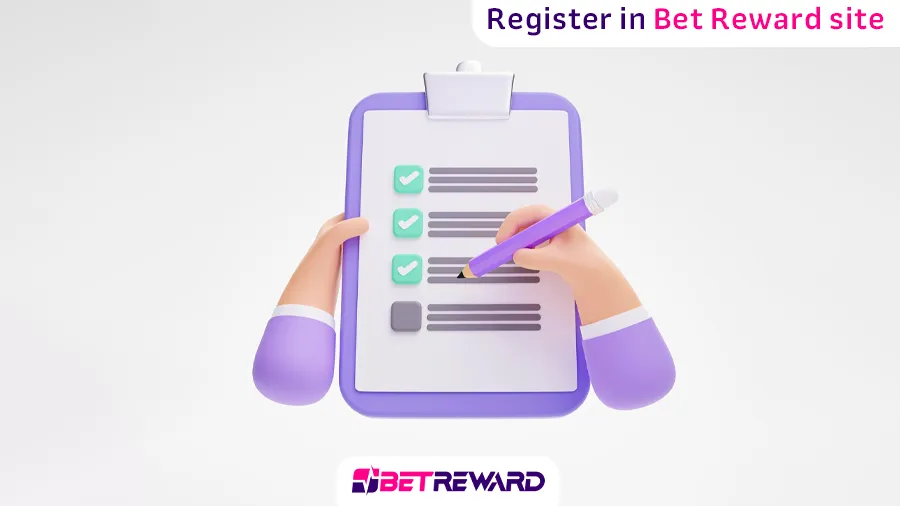In the ever-evolving landscape of sports and entertainment, a new trend has emerged, intertwining the worlds of athletics and commerce in ways previously unimagined: betting partnerships. These alliances bridge the gap between sports organizations and betting companies, creating a thrilling nexus where competition meets chance. As fans cheer for their favorite teams, they are now also empowered by a slew of innovative betting options, making the games more engaging than ever. But what do these partnerships really mean for the integrity of sports, the experience of fans, and the future of gambling? In this article, we delve into the mechanics and implications of betting partnerships, exploring the motivations behind them, their impact on the industry, and the evolving relationship between sports, fans, and betting entities. Join us as we unpack this intriguing phenomenon that’s reshaping the sporting landscape.
Table of Contents
- Exploring the Landscape of Betting Partnerships
- Key Benefits of Strategic Collaborations in Betting
- Navigating Regulatory Challenges in Betting Partnerships
- Best Practices for Building Successful Betting Alliances
- Q&A
- Concluding Remarks
Exploring the Landscape of Betting Partnerships
In recent years, the betting industry has witnessed a significant shift towards collaborative ventures, as businesses seek to harness the power of strategic alliances. These partnerships are not merely transactional but represent a melding of resources, expertise, and market presence. By leveraging each other’s strengths, companies can enhance their offerings and tap into new customer bases. Some of the most impactful alliances have emerged across various sectors, including:
- Technology Integration: Collaborating with tech firms to develop advanced betting platforms and analytics tools.
- Media Partnerships: Aligning with broadcasting networks to deliver real-time updates and engaging content.
- Influencer Collaborations: Partnering with personalities to reach diverse demographics through authentic endorsements.
Moreover, successful betting partnerships often incorporate data-sharing agreements that enable firms to optimize their marketing strategies and product offerings. This collaborative approach is also reflected in sponsorships and affiliate marketing, with companies pooling resources to co-promote events or products. To visualize this growing trend, the following table outlines notable partnerships that have made waves in the industry:
| Partnership | Focus Area | Impact |
|---|---|---|
| Betway & Premier League | Sponsorship | Increased brand visibility in sports |
| DraftKings & ESPN | Content Integration | Enhanced sports media offerings |
| William Hill & SBTech | Technology Collaboration | Improved online betting infrastructure |
Key Benefits of Strategic Collaborations in Betting
Strategic collaborations in the betting industry unlock a plethora of advantages that can propel businesses to new heights. By joining forces, organizations can leverage each other’s strengths, enhancing their overall market presence and service offerings. Access to new customer bases is one of the standout benefits, as partnerships often introduce brands to audiences they might not have reached independently. Additionally, sharing resources and technologies can lead to innovative betting solutions that differentiate offerings in a crowded market.
Furthermore, partnerships foster risk-sharing, which can prove pivotal in an industry subject to fluctuating regulations and market dynamics. This approach allows companies to enhance operational efficiencies through collaborative marketing initiatives, joint promotions, and combined research efforts. The table below outlines some of the key benefits and their impacts:
| Benefit | Impact |
|---|---|
| Access to new audiences | Increased customer engagement and loyalty |
| Shared resources | Cost savings and improved service delivery |
| Risk-sharing | Greater resilience against market fluctuations |
| Innovative solutions | Competitive edge in product offering |
Navigating Regulatory Challenges in Betting Partnerships
In the rapidly evolving landscape of betting partnerships, understanding and adapting to regulatory frameworks is paramount. Stakeholders must navigate a complex web of laws that can differ significantly across jurisdictions. To effectively manage these challenges, organizations often employ a multi-faceted strategy that includes:
- Thorough Legal Research: Engaging legal advisors to dissect local and international regulations ensures compliance.
- Proactive Communication: Building relationships with regulatory authorities fosters transparency and aids in understanding impending changes.
- Adaptive Business Models: Flexibility in operations allows for adjustments as regulations evolve, ensuring sustainability.
Another critical aspect of managing regulatory challenges involves the crafting of robust partnership agreements. These agreements should outline compliance responsibilities and risk-sharing mechanisms. Key elements to consider when establishing these contracts include:
| Element | Description |
|---|---|
| Compliance Obligations | Clearly define what each partner is responsible for in terms of regulatory adherence. |
| Dispute Resolution | Establish mechanisms to address conflicts arising from regulatory issues gracefully. |
| Termination Clauses | Ensure there are exit strategies for non-compliance scenarios, minimizing legal repercussions. |
Best Practices for Building Successful Betting Alliances
Establishing successful betting alliances requires a strategic approach that emphasizes mutual benefits and clear objectives. Identifying the right partners is crucial; organizations should look for entities that share similar values and goals. This can include other betting operators, sports teams, or influencers in the betting landscape. Open communication is vital throughout the partnership, ensuring that all parties are aligned and that expectations are clearly articulated. Regular meetings can facilitate this, fostering an environment of collaboration and support.
Moreover, leveraging technology can significantly enhance the effectiveness of these alliances. Integrating platforms can help streamline processes and improve data sharing, leading to better decision-making. Building a strong brand presence through joint marketing campaigns can also amplify outreach efforts. By utilizing social media, cross-promotion, and shared content, partners can reach broader audiences and build credibility. Below is a brief table summarizing essential elements for effective partnerships:
| Element | Description |
|---|---|
| Shared Goals | Aligning objectives and expectations between partners. |
| Open Communication | Regular interactions and feedback loops to enhance collaboration. |
| Technology Integration | Using tech tools to streamline processes and data sharing. |
| Joint Marketing | Co-branded campaigns to strengthen brand visibility. |
Q&A
Q&A on Betting Partnerships
Q1: What exactly are betting partnerships?
A1: Betting partnerships are collaborations between sports organizations and betting companies designed to create mutually beneficial relationships. These partnerships often involve promotional activities, brand exposure, and sometimes even revenue-sharing agreements. They allow sports entities to tap into the lucrative betting market while providing betting companies with a platform to reach a wider audience.
Q2: How do these partnerships benefit sports organizations?
A2: Sports organizations can gain significant financial support through betting partnerships, helping to fund operations, invest in facilities, or enhance fan experiences. Additionally, they can leverage the marketing expertise of betting companies to drive engagement and attract new fans, ultimately increasing their audience and revenue.
Q3: What advantages do betting companies gain from these partnerships?
A3: For betting companies, partnerships provide access to a dedicated fanbase, enhancing their brand visibility. By aligning with popular teams or leagues, they can increase customer acquisition, boost betting activity during events, and reinforce their brand as a legitimate part of the sports narrative.
Q4: Are there any regulatory challenges associated with betting partnerships?
A4: Yes, regulatory challenges can pose issues for both sports organizations and betting companies. Different jurisdictions have varying laws regarding gambling, and navigating these can be complex. It’s crucial for both parties to ensure compliance with legal restrictions while crafting their partnership agreements.
Q5: What are some examples of successful betting partnerships?
A5: Examples abound, from major leagues like the NFL and NBA partnering with betting companies to more localized agreements between sports teams and platforms. Notably, the English Premier League has seen numerous betting partnerships where teams receive sponsorship from betting firms, which has transformed the landscape of sports marketing.
Q6: How can fans benefit from these partnerships?
A6: Fans can enjoy enhanced experiences through exclusive promotions, events, and content provided by betting partnerships. Many sports organizations offer incentives, such as free bets or enhanced odds for fans, creating an engaging connection between the sport and the betting experience.
Q7: Is there a downside to betting partnerships?
A7: Some critics argue that extensive partnerships may contribute to the normalization of gambling, particularly among younger audiences. This has raised concerns about responsible gambling practices and the potential for addiction. It’s essential for sports organizations to address these issues by promoting healthy gambling habits within their messaging.
Q8: What does the future hold for betting partnerships?
A8: The future looks promising, as more regions are legalizing sports betting and the market continues to grow. We can expect to see innovative partnership models emerging, including more digital integrations and responsible gambling initiatives. The landscape will likely evolve, with a focus on creating engaging, safe environments for fans and bettors alike.
Concluding Remarks
the evolution of betting partnerships has reshaped the landscape of the gambling industry, creating a dynamic interplay between innovation, regulation, and consumer engagement. As operators seek to forge alliances that amplify their offerings and enhance the user experience, the journey ahead is rife with opportunities and challenges. Stakeholders must navigate this intricate web of collaboration with a keen awareness of the ethical implications and the evolving regulatory environment. Ultimately, the future of betting partnerships will depend on balancing profitability with responsibility, ensuring that the thrill of the game remains a positive experience for all involved. Whether you are a seasoned bettor or a curious newcomer, staying informed about these partnerships will empower you to make informed choices in this ever-changing arena. So, as we await the next chapter in this intriguing saga, one thing is clear: the game is far from over.







One Response